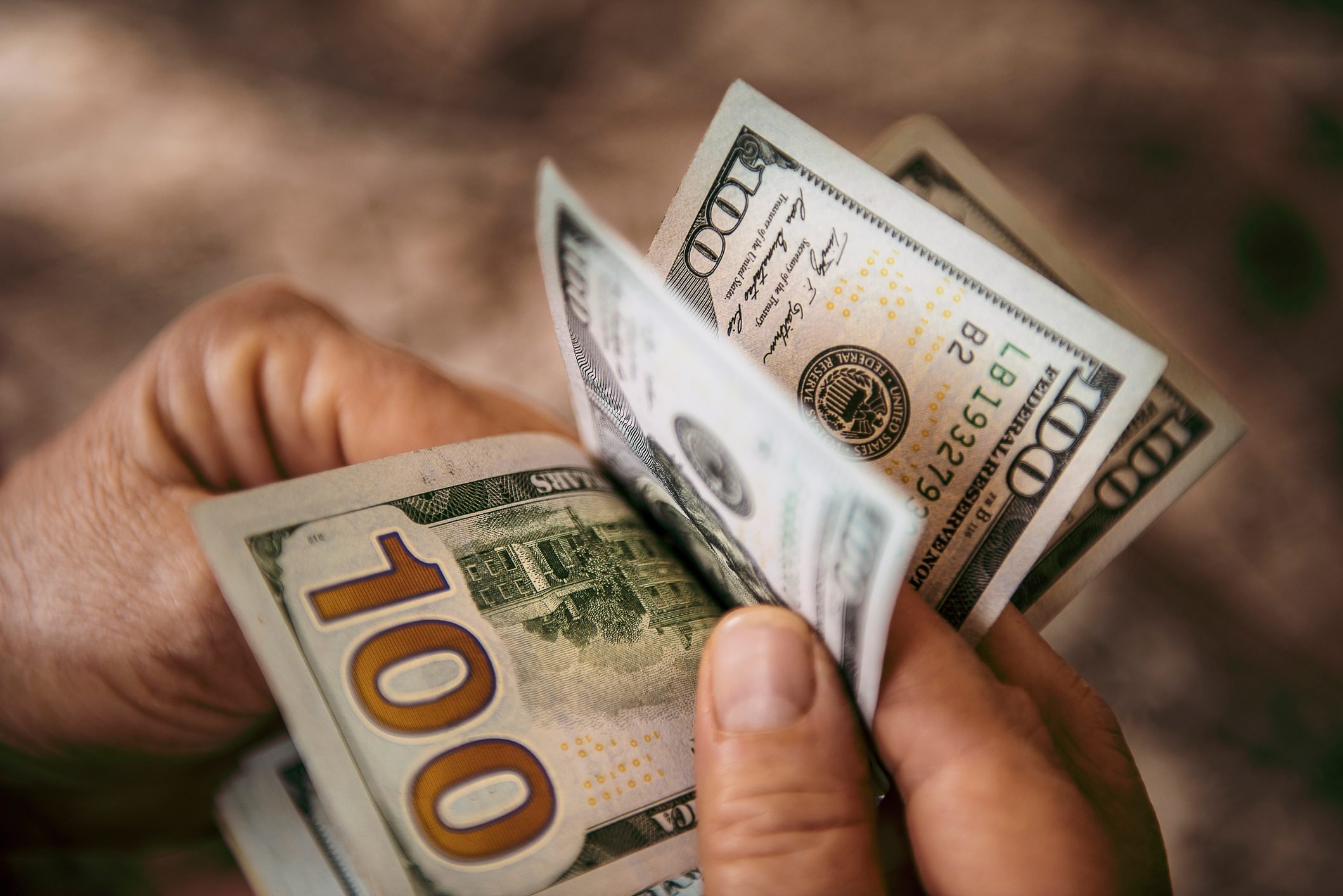More On: IRS
Why John D. Rockefeller is not a bad guy and should be remembered as a hero
Why Chelsea Clinton, as first daughter, wanted to 'fade into the background'
I'm a flight attendant, and here's how to get a free upgrade to first class
Former IRS agents explain why the department has guns and more than 3 million rounds of ammunition
When Biden left Afghanistan, he left behind more than a thousand Americans
It's no secret that wealthy individuals like to conceal their income from the Internal Revenue Service. Where they do it and how they do it are not always kept a secret.
 dblight/Getty Images
dblight/Getty ImagesPlaying hide-and-seek with Uncle Sam
Taxes are something no one enjoys. So, looking for new tax benefits can be a sensible use of your time and energy, regardless of your income level. However, the super-rich would go to great lengths to avoid paying taxes whenever they have the means to do so. The report, co-authored by former Treasury Secretary Lawrence Summers and finance professor Natasha Sarin, makes some startling assertions about the current state of the economy. More than $5 trillion in taxes will be avoided by the wealthiest 1% of taxpayers between 2020 and 2029, according to Summers and Sarin. Of course, wealthy people's legal tax-cutting tactics are worth considering and implementing when practicable. Learning about illegal tactics isn't a bad idea, either, because you can avoid them and the consequences they may have.
 Klaus Vedfelt/Getty Images
Klaus Vedfelt/Getty ImagesBusiness deductions
The wealthy often try to lower their tax burden by starting a business (or numerous enterprises). There is no need to be affluent in order to benefit from Jon Dulin's Money Smart Guides technique. If you've been thinking about starting your own business or simply formalizing a side hustle, this could be a smart alternative. You must, of course, go through the necessary procedures before you can do anything else: In most cases, all it takes is a quick trip to the websites of your Secretary of State and the Internal Revenue Service to set up a legal company entity.Tax breaks are only one of the many advantages of starting a business. As a starting point, you can write off any losses your business incurs and then use business expenses to balance business income to reduce taxable income," Dulin explains in a blog post. Solo 401(k) plans, for example, allow the business owner to save far more money than typical 401(k) plans because you are both the employer and the employee.
 FluxFactory/Getty Images
FluxFactory/Getty ImagesHiring family members
The involvement of one's extended family is another another strategy employed by the wealthy to avoid paying taxes on their income. If you own a business, you can employ your spouse or children and pay them a wage as part of this approach. According to the IRS, one of the benefits of running your own business is the opportunity to bring in your family. So, how precisely does this benefit you? A write-off is given to your company, and your spouse or child can place the money in tax-deferred accounts, according to Dulin. The money in these accounts may be further shielded from taxation." Don't forget to pay any payroll taxes that are required.
 Portra Images/Getty Images
Portra Images/Getty ImagesVacation homes
Bryan Vance, the founder of Bucks & Cents, a real estate firm that specializes in vacation properties, thinks that the wealthy may choose to conceal money from Uncle Sam by purchasing vacation properties. According to Vance, "many homeowners no longer itemize popular items such as mortgage interest on their primary house because to the recent increase in the standard deduction." If you want to itemize, you can only deduct up to $10,000 in state and local income taxes and property taxes. With a vacation property, on the other hand, "that's not the situation," Vance explains. If you only use your vacation home for 14 or fewer days each year, the money you make from renting it out is normally exempt from taxes. More than 14 days of rental per year can be deducted from your taxes (mortgage interest, property taxes, maintenance, depreciation, etc.).
 kolderal/Getty Images
kolderal/Getty ImagesReal estate tax deferment
Another tax-saving strategy may be employed by the wealthy when they sell an investment property, such as a holiday home. Best Wallet Hacks founder Jim Wang discusses how you can defer capital gains taxes on the sale of an investment property by using a 1031 Exchange. In order to defer capital gains on the sale of investment real estate, Wang recommends purchasing a "like-kind" property. Since you're transferring one investment for another, the IRS is willing to allow you to delay your gains.You'll need to perform a 1031 Exchange if you want to put off paying taxes on your gains. You'll eventually have to pay taxes on the gains you've made, but until then, Wang says, you may keep trading and expanding your real estate portfolio without having to worry about doing so. At this time, there is no limit to the number of times you can take advantage of this unique tax deferment.
 skynesher/Getty Images
skynesher/Getty ImagesLife insurance
Permanent monetary worth Life insurance, such as whole life or universal life insurance, is another place where the wealthy invest their funds. Life insurance, according to Chris Abrams, founder of Abrams Insurance Solutions, is an ideal approach to reduce the tax and market risk associated with other assets or investments. "Unlike 401(k)s and other eligible plans, contributions are not limited by the government," Abrams notes. He also points out that you can use the money you withdraw from your life insurance policy as a tax-free loan against the death benefit. "If something unexpected happens, there is still a death benefit because it is a life insurance policy."There is, of course, some danger involved. If you die with a loan on your life insurance policy still outstanding, the insurance company will deduct the debt from your death benefit before transferring any residual funds to your dependents. Additionally, if you borrow more than you paid in premiums for the policy, the proceeds may be liable to income tax.
 Martin Puddy/Getty Images
Martin Puddy/Getty ImagesOffshore accounts
Offshore bank accounts, such as those often utilized in the Cayman Islands, Switzerland, and Singapore, would be absent from any list of the myriad methods the wealthy hide their money. According to Pedro Nicolaci da Costa of Business Insider, the ultra-rich have roughly 10% of global GDP stashed away in offshore tax havens. Tax havens, which allow the wealthiest to avoid paying their fair share of taxes, can exacerbate economic inequality in the United States and around the world. And here's something else to think about: By 2017, economic disparity in the United States has returned to levels similar to those seen during the Great Depression. Offshore accounts aren't illegal in and of themselves, but they cross the line when they're used to avoid paying taxes.
 NoSystem images/Getty Images
NoSystem images/Getty ImagesShell companies
You've probably heard of shell businesses, but what precisely are they? A shell corporation is a business that does not have its own operations or significant assets. Shell corporations, despite their murky nature, are occasionally legitimate. When an American corporation wishes to run industrial plants in another country, it could create a shell company. They do, however, frequently breach the line. For example, an anonymous shell company can conceal a company's or individual's assets from the IRS, law enforcement, a spouse, creditors, and others. Shell firms and other tax loopholes, according to the non-profit Americans for Tax Fairness, let American corporations avoid paying up to $90 billion in taxes to the IRS each year.
 CiydemImages/Getty Images
CiydemImages/Getty ImagesMunicipal bonds
Buying government bonds, believe it or not, is a widespread and legal strategy for the wealthy to avoid paying taxes. "Municipal bonds are issued by governments (local, state, and federal) to fund significant projects like building a new school, roadway, or public park," says Drew, the founder of SimpleMoneyLyfe.com. "Municipal bonds are safe investments with a reasonable interest rate; nonetheless, the ultra-rich frequently invest in municipal bonds since earnings are virtually always tax-free." Municipal bonds are also available to people with smaller incomes and net worths, but you'd be better off looking for a taxable bond with a greater return rate. If you have any queries about specific investment plans, see your financial adviser.
 Debashis Konger/EyeEm/Getty Images
Debashis Konger/EyeEm/Getty ImagesSparkling assets
Natalie Pine, a certified financial planner and managing partner of Briaud Financial Advisors, discusses a murky tactic used by some dishonest wealthy individuals to defraud the IRS. This illicit procedure begins with the purchase of pricey jewelry. "I've heard of people purchasing diamonds in particular and passing them on to their children without filing any gift or estate tax returns," Pine says. "They're little stuff that readily slip between the cracks. Unless the individual/couple is audited, there are no specifications given [in the inventory] for the IRS to deny." Of course, Pine never recommends breaking the law to avoid paying taxes in this manner. "To be clear, we have never done this and do not suggest it," she says.
 Thomas Barwick/Getty Images
Thomas Barwick/Getty Images





















